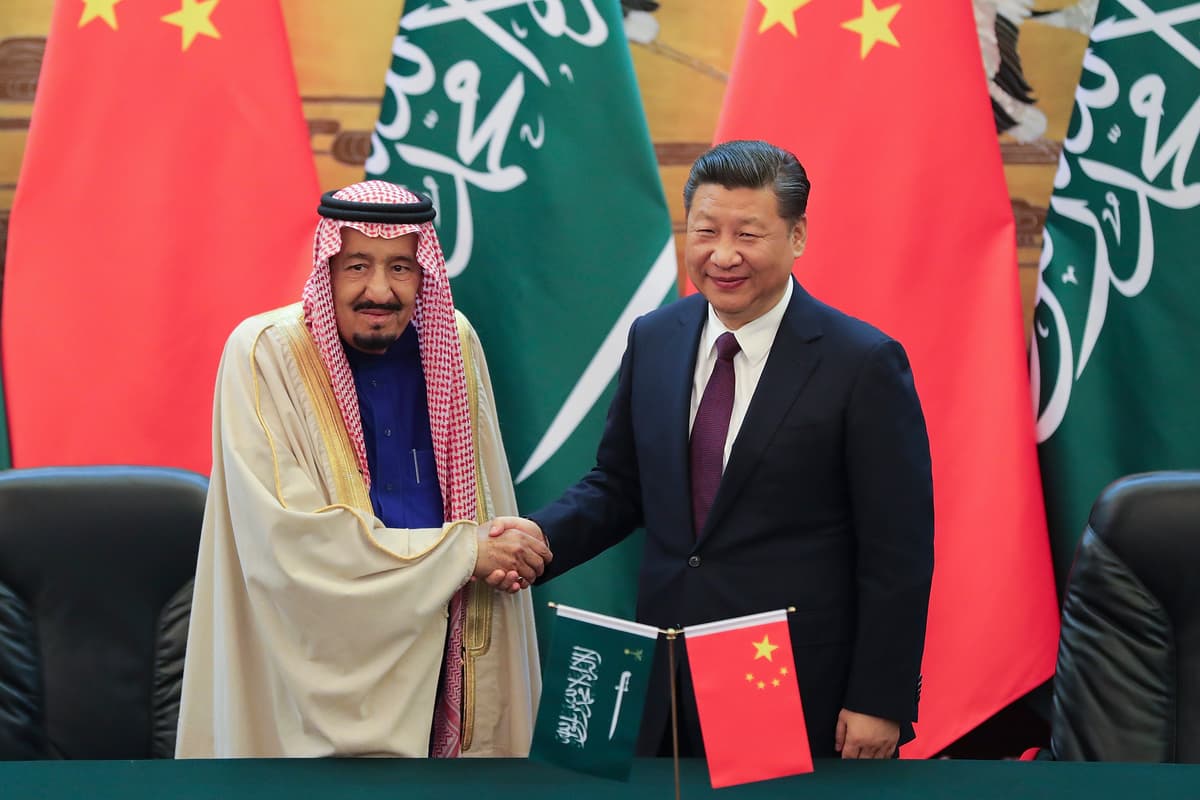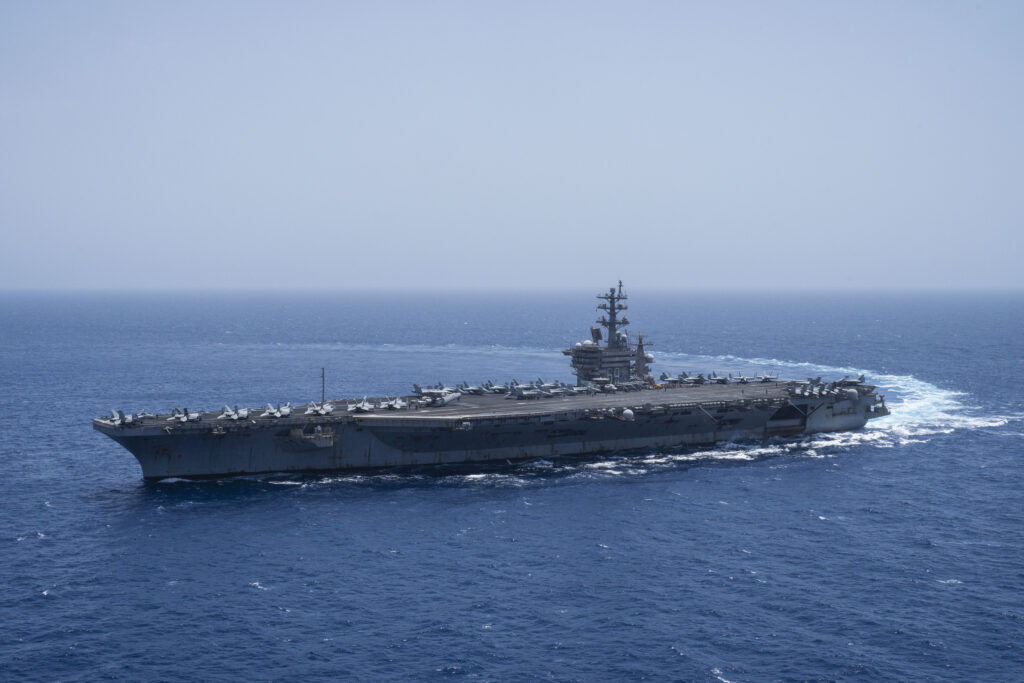Saudi Arabia Courting Chinese Diplomats in a Signal It Wants a Defense Pact With Washington
The kingdom’s ambitions could extend even to a nuclear program.

Saudi Arabia is telling Communist Chinese diplomats that the Kingdom is ready to resolve the war with the Houthis in the Red Sea. The real message, though, is not for China, but rather a signal to America that the Saudis have leverage on, and a desire for, a defense treaty — and perhaps even a nuclear program.
The Saudi Defense Minister, Khaled bin Salman, told Chinese officials that the kingdom would make concessions in exchange for a stop to the Houthis’ attacks on ships moving in and out of Saudi ports, according to Houthi sources quoted by Lebanon’s Al Akhbar news, a Hezbollah mouthpiece.
“The Saudis are likely hoping China will be able to apply some pressure on the group,” a senior fellow at the Washington Institute for Near East Policy, Grant Rumley, told Al-Monitor news. These hopes, he added, are “largely misguided” given China’s disregard for actions outside of its self-interest.
The Houthi terrorists have been attacking commercial shipping in the Red Sea since October last year, using the Israel-Hamas war as a pretext. In response, America has led an air campaign on Houthi targets in Yemen.
The Pentagon just sent an aircraft carrier, United States Ship Theodore Roosevelt, from the Pacific to replace United States Ship Dwight D. Eisenhower, which spent nearly eight months in the region defending against Houthi attacks.

Withdrawing the Eisenhower strike group, though, may be emblematic of a more general American withdrawal. “If Biden doesn’t want to lead, the Saudi government implies, perhaps another country is up to the task,” a senior fellow at the American Enterprise Institute, Michael Rubin, tells the Sun.
Do the Houthis have any interest in a ceasefire? It seems unlikely. Saudi Arabia, too, for years waged war with the Houthis on Saudia Arabia’s southern border. Setting the Houthis aside, Saudi Arabia is looking to China as a power broker in the region — to get America’s attention.
In March 2023, China brokered a deal between Saudi Arabia and Iran to restore diplomatic relations. One of the most significant elements of their rapprochement was the absence of America and Europe in negotiating the deal. The world had entered a “post-American Gulf era,” as described by an Emirati political scientist.
The Saudi-Chinese partnership has strengthened since then, ranging from cooperation on critical minerals and artificial intelligence to energy trade and industrial projects. The two countries’ defense ministers met at Beijing on Tuesday to discuss developing this symbiosis further, including military and defense cooperation.
Riyadh’s turn to Beijing for a resolution with the Houthis is telling America it has other nations with whom it can do business. This provides leverage in negotiating for a defense treaty with Washington.
The Biden administration was nearing a defense pact with Riyadh — called the Strategic Alliance Agreement — in early June, the Journal reported. The security agreement, if finalized, would include an American commitment to defend Saudi Arabia, and provide America with access to Saudi airspace and territory.
Such a treaty appears unlikely in the current moment, given the need for approval of two-thirds of the United States Senate and lack of Republican support if the treaty excludes normalization with Israel. Hot wars in the Middle East and the Biden administration’s preoccupation with the fallout from last night’s presidential debate present additional obstacles.
Nonetheless, the crown prince is looking to position his kingdom for the security pact, and, in addition, a civilian nuclear program.
Saudi Arabia’s primary adversary in the region remains the Islamic Republic of Iran and its terrorist proxies. “No countries other than Israel, Saudi Arabia, and Rwanda are expected to put up with constant terror threats the way American officials demand these countries do,” Mr. Rubin tells the Sun.
Saudi Arabia is trying to protect itself from the Islamic Republic and its proxies. Enlisting American support would certainly make it easier. “A defense treaty would make threats to Saudi territory our own,” Mr. Rubin says.
Nuclear weapons, too, would provide the kingdom with extra protection. Riyadh has made clear its interest in cooperating with America on a civilian nuclear program. The kingdom also expressed its intent to develop the bomb if Iran does so. An American-backed civilian program, if initiated, would provide Saudi Arabia with cover for a nuclear weapons program.
The question remains whether Washington will receive Riyadh’s signal. “The State Department across administrations has a conceit that it is alone in the sand box with whomever it engages,” Mr. Rubin says. He adds that “for all Biden’s ‘diplomacy is back’ rhetoric, Biden, Jake Sullivan, and Antony Blinken have a tendency to take American allies for granted in a way most resent.”

